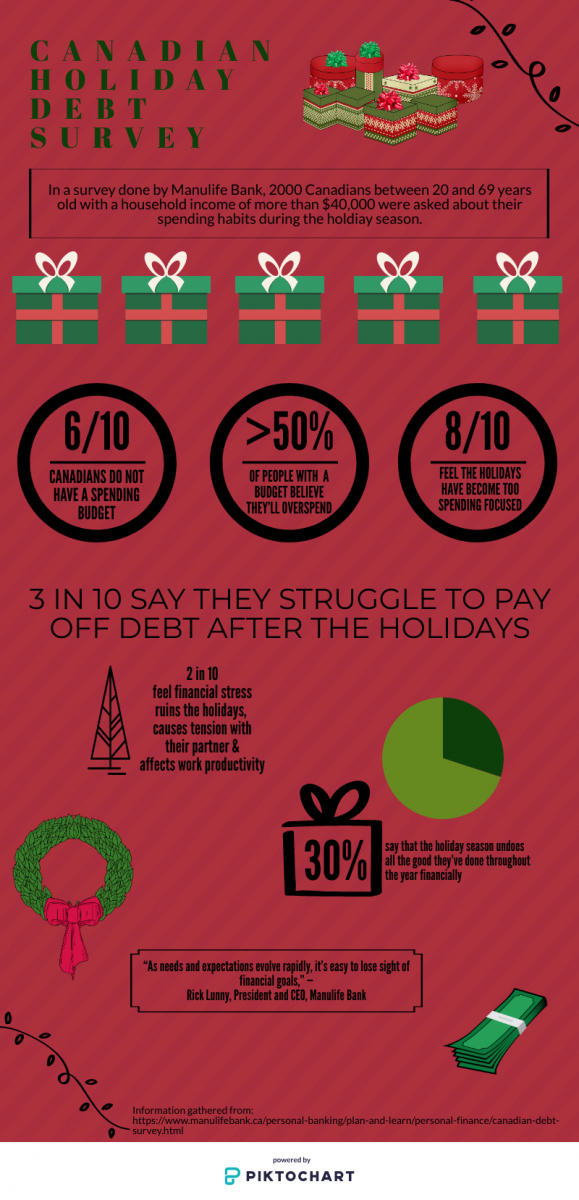With the holidays fast approaching, many people are becoming stressed about finding the perfect gift for their loved ones. The problem is, sometimes the “perfect gift” may also be the most expensive. In fact, much of the stress surrounding the holidays is financial. However, it doesn’t have to be that way.
Nora Hills, a financial planner at CIBC, explains that the easiest way to not stress about spending during the holiday season is to get a budget in order at least six weeks before:
“The key is to set a realistic budget and stick to it. Take your monthly or yearly income into account and decide what’s best for you in terms of spending.”
Last year, the Canadian average spent on holiday shopping was $675, with numbers varying dramatically between each province. In Ontario, the average was $805.
But how much should we be spending?
In 2017, the median household income was $70,000, and it is advised to keep your spending budget to one percent of your pre-tax income. In this case, that would amount to $700 spent on gifts. However, for students in Canada, the part-time yearly income drops to $35,100, which means their holiday budget would drop to $350.

For Ashley Marcelino, a student at the University of Guelph Humber, the issue of spending too much money goes hand in hand with not having enough time to plan and budget:
“Between being in school full time and also working long hours as a server, I usually have to wait until the very last minute to start buying gifts. By the time I actually go shopping, it becomes less about spending a certain amount of money and more about having to buy something, regardless of the price.”
Student Serena Pandolfi, who considers herself good at budgeting money, feels that society has turned the holidays into something more materialistic and consumer-based than ever before:
“No matter what, you always want to show the people in your life how much they mean to you, and unfortunately, we choose to do that by how much we can spend. You want to repay people in your life by giving them something that shows how much you appreciate them, and that’s where lines get blurred in terms of spending.”
While Hills agrees with this, she says that there’s many ways to show the people in your life how much they mean to you—without having to break the bank:
“One way is to plan ahead… if there’s someone in your life you may not see until after the holidays, wait until Boxing Day where prices drop significantly.”

If you happen to be tight on money this time of year, there are plenty of cost-effective ways to gift-give. These include splitting the cost of one gift between multiple people, creating a Secret Santa or gift exchange with a price limit, or even making something from the heart. Often, quality time with loved ones can mean the most during the holiday season.
